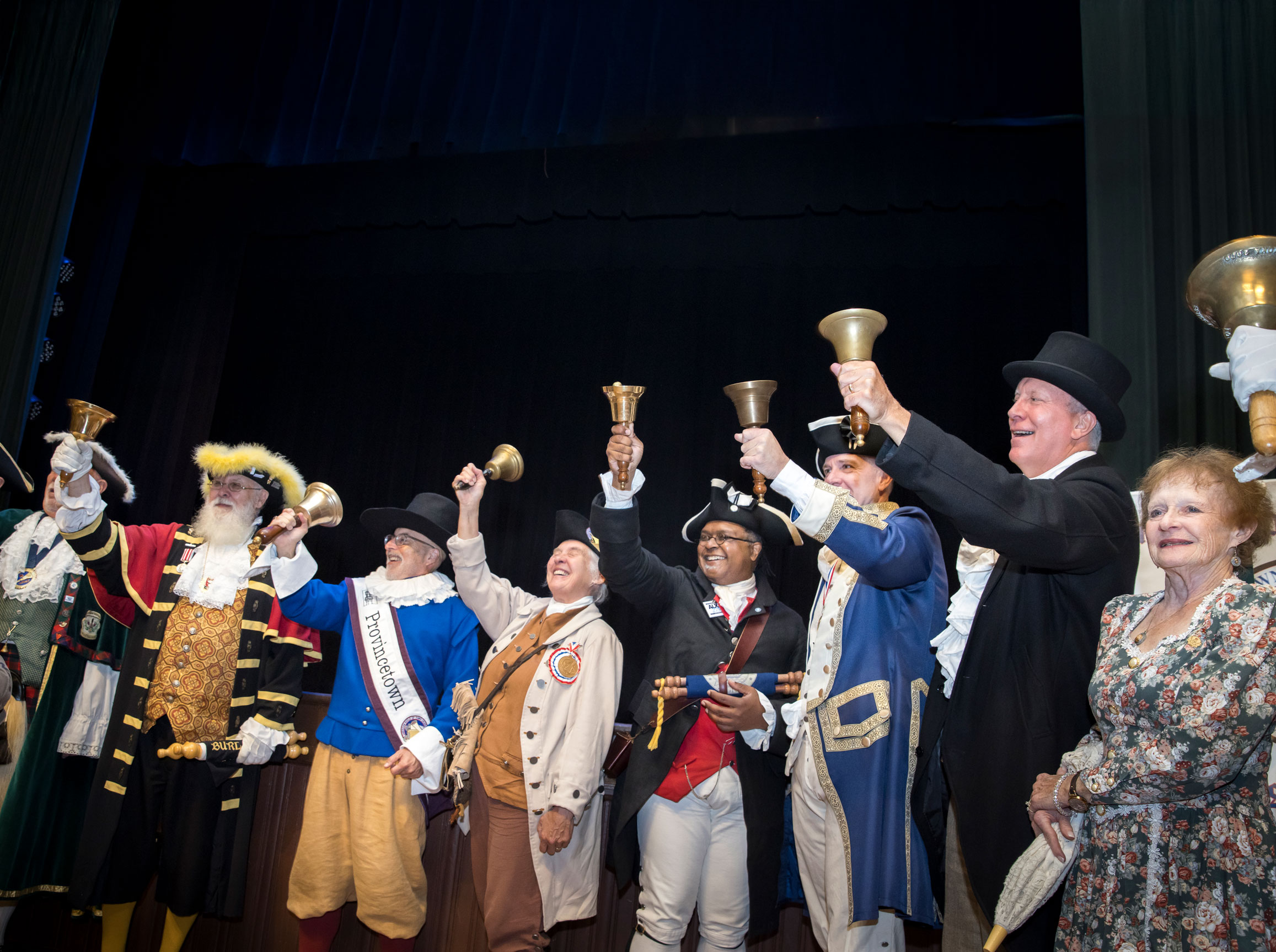Provincetown’s crier tradition is alive, well, and flourishing.
by James P. Freeman
photography by Julia Cumes
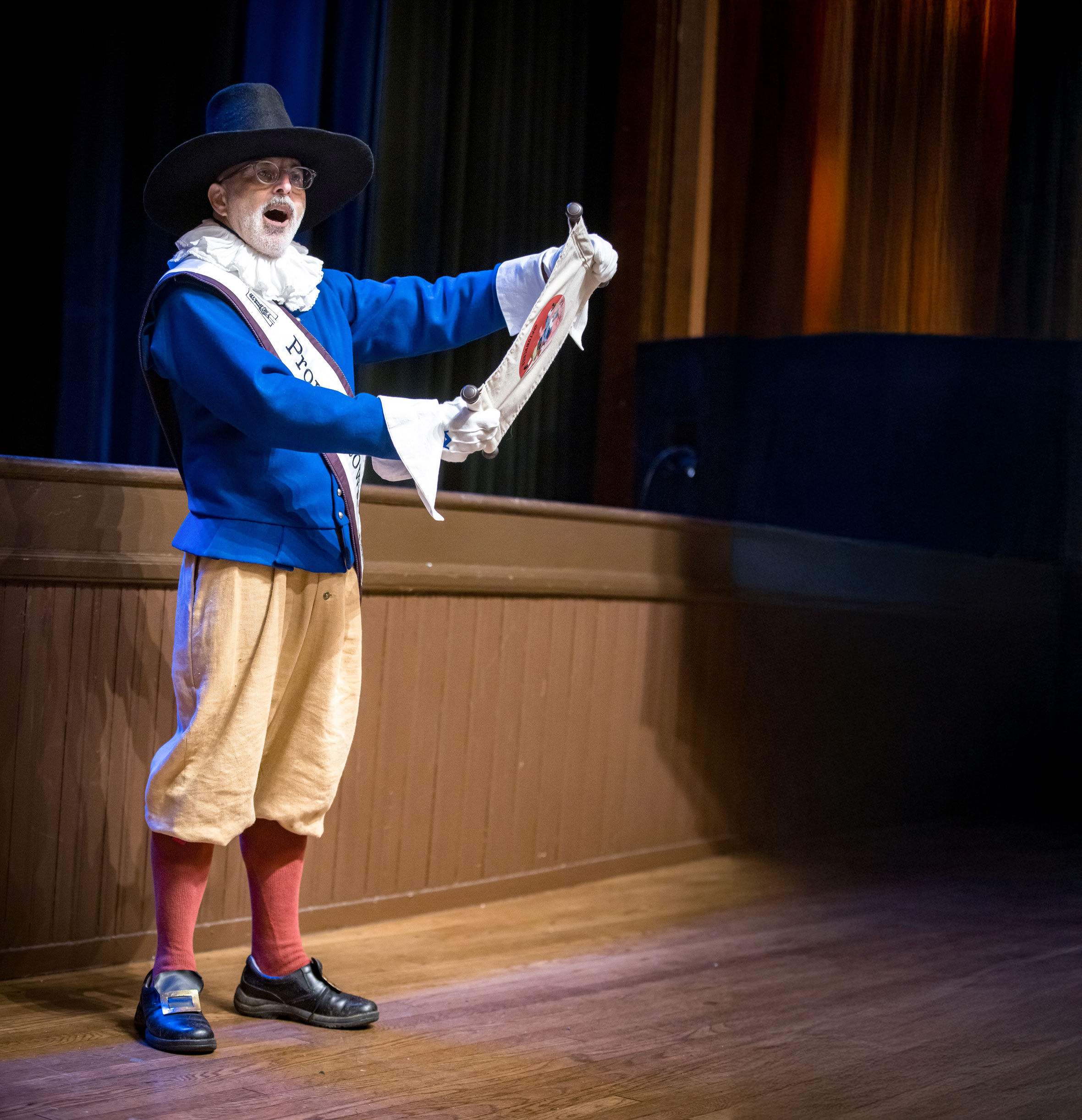
How does one become a town crier?
“Being in the wrong place at the wrong time,” says Daniel Gomez Llata, the official Provincetown town crier, with a wry smile.
A self-described “professional vagabond,” Llata has served as a mailman, assistant harbormaster, photographer, teacher, and DJ, among other gigs. In other words, he has a deep history with the town.
When it was suggested that he apply for the job in 2020, his response was, “I don’t do show tunes.” But sitting with him at the East End Market, you realize (as the Chamber of Commerce and many letter-writing advocates did) that his contagious personality, knowledge of Provincetown, and devotion to the community make him an obvious choice. He relishes the role of good-will ambassador.
Llata may rightly be called the first modern town crier given his steady social media presence. But as the only crier on mainland Cape Cod, he told Provincetown Magazine, “My goal is to combine the traditional role with my own personal style, to present a mixture of age-old tradition with the modern reality of Provincetown today.”
Historically, criers carried out essential communication roles. At first, they were Spartan runners from ancient Greece, delivering information about battles and peace offerings verbally. Over time, news delivery spread across continental Europe.
Key requirements were the ability to read and (later) write, a loud voice, and an air of authority. They were often referred to as “bellmen”—ringing a bell in a market square or village green called attention to important, forthcoming proclamations. Criers were paid employees of the kingdom and, later, municipality.
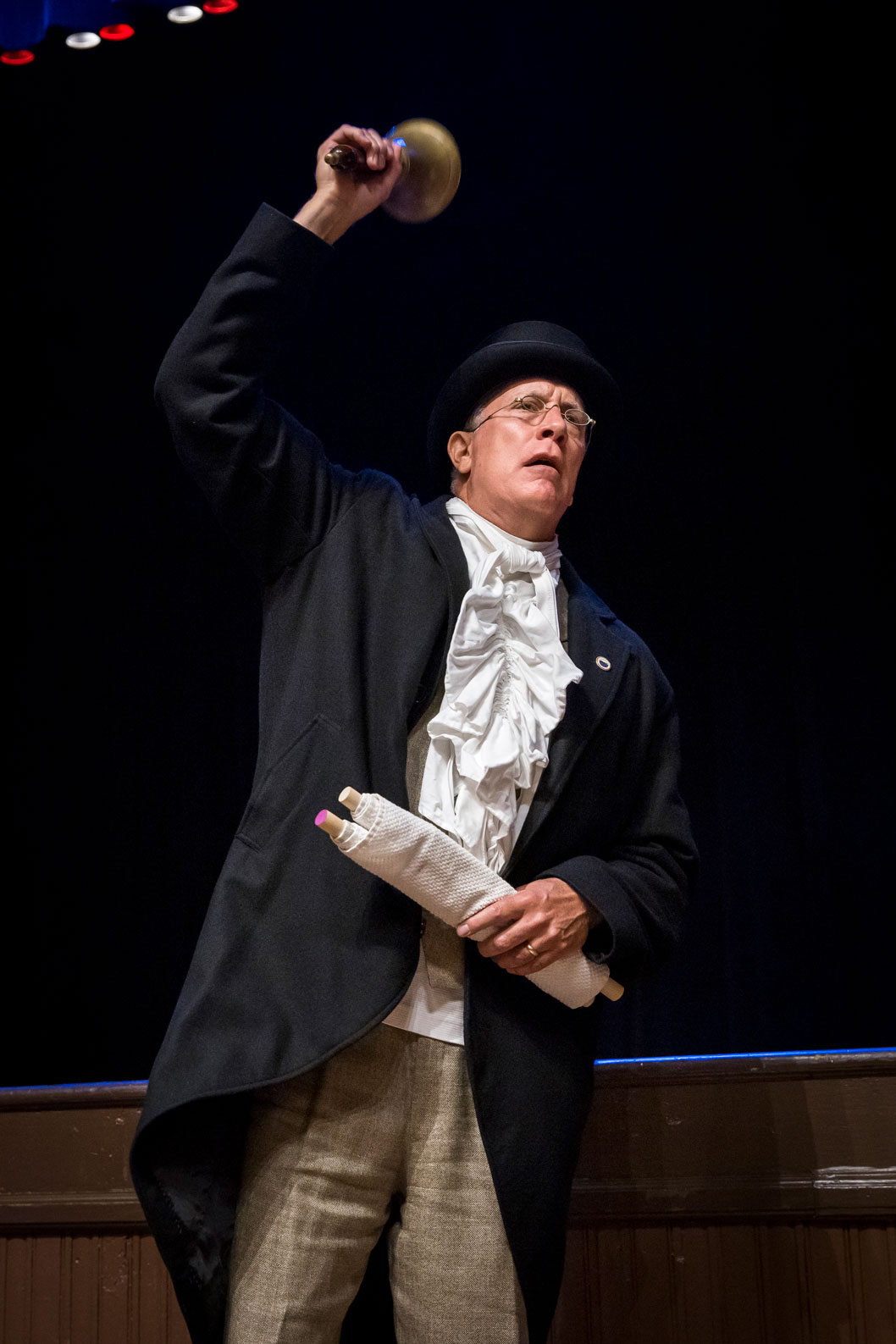
Oyez, Oyez, Oyez!
It is with great pride that I bring you the most joyous news.
Provincetown’s newly adopted prodigal son, playwright Eugene O’Neill, has been awarded the coveted Pulitzer Prize for his play Beyond the Horizon.
It was 1916 when he first set foot on our shores, his suitcase chock full of plays. His early works were nurtured by the newly formed Provincetown Players, who in just a few years’ time have garnered a reputation for excellence, becoming the new face of American theatre.
Be you an actor, poet, painter, or playwright, Provincetown has long been a haven for artists drawn to our shores by the beauty of its landscape.
Today we celebrate Mr. O’Neill and all those who continue to create and inspire.
God Bless America.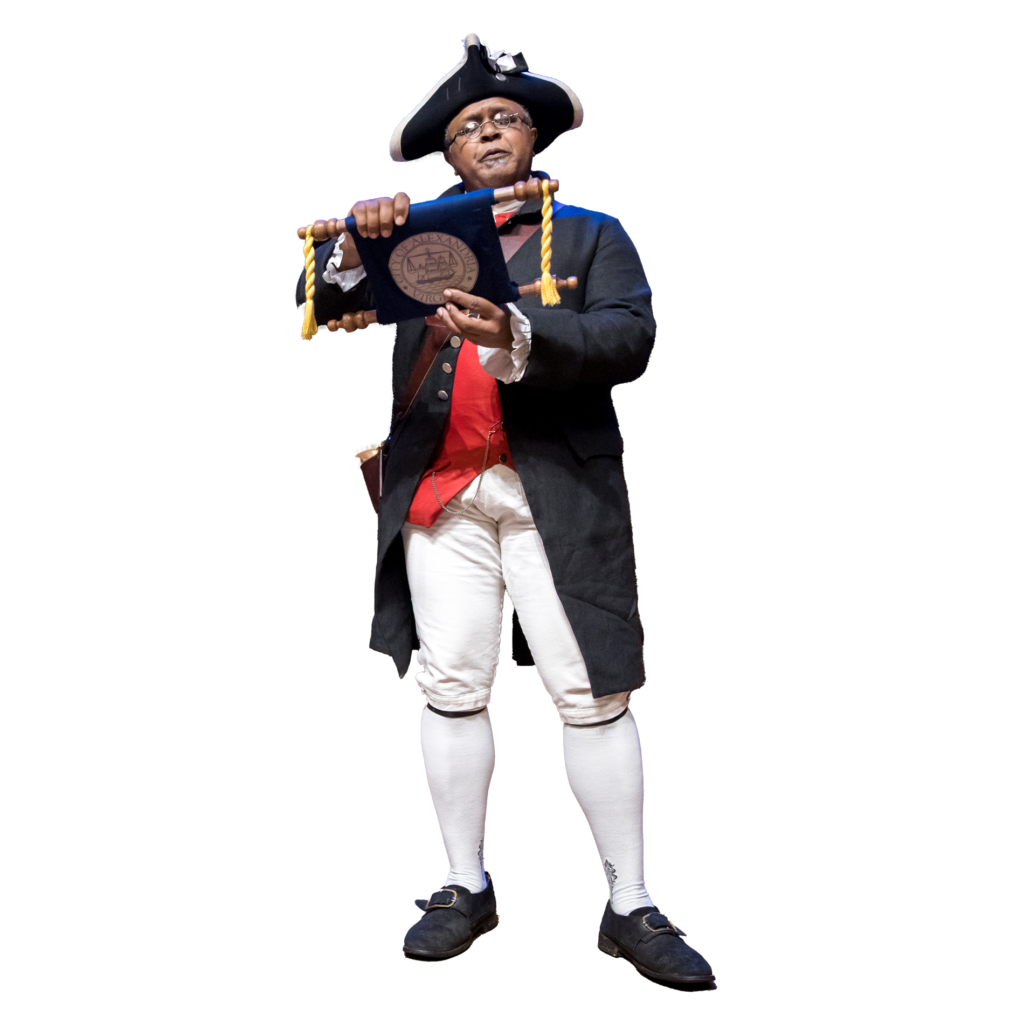
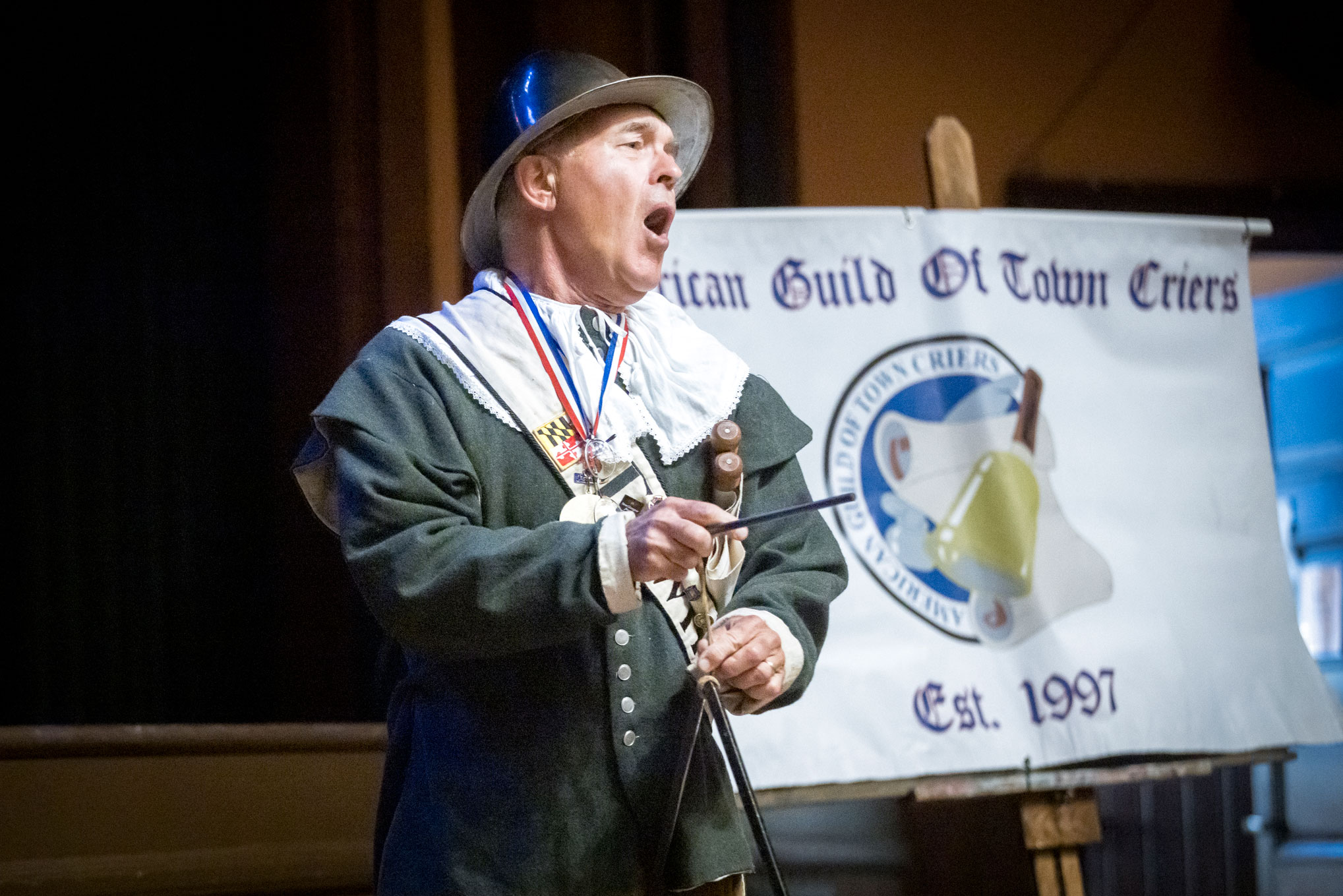
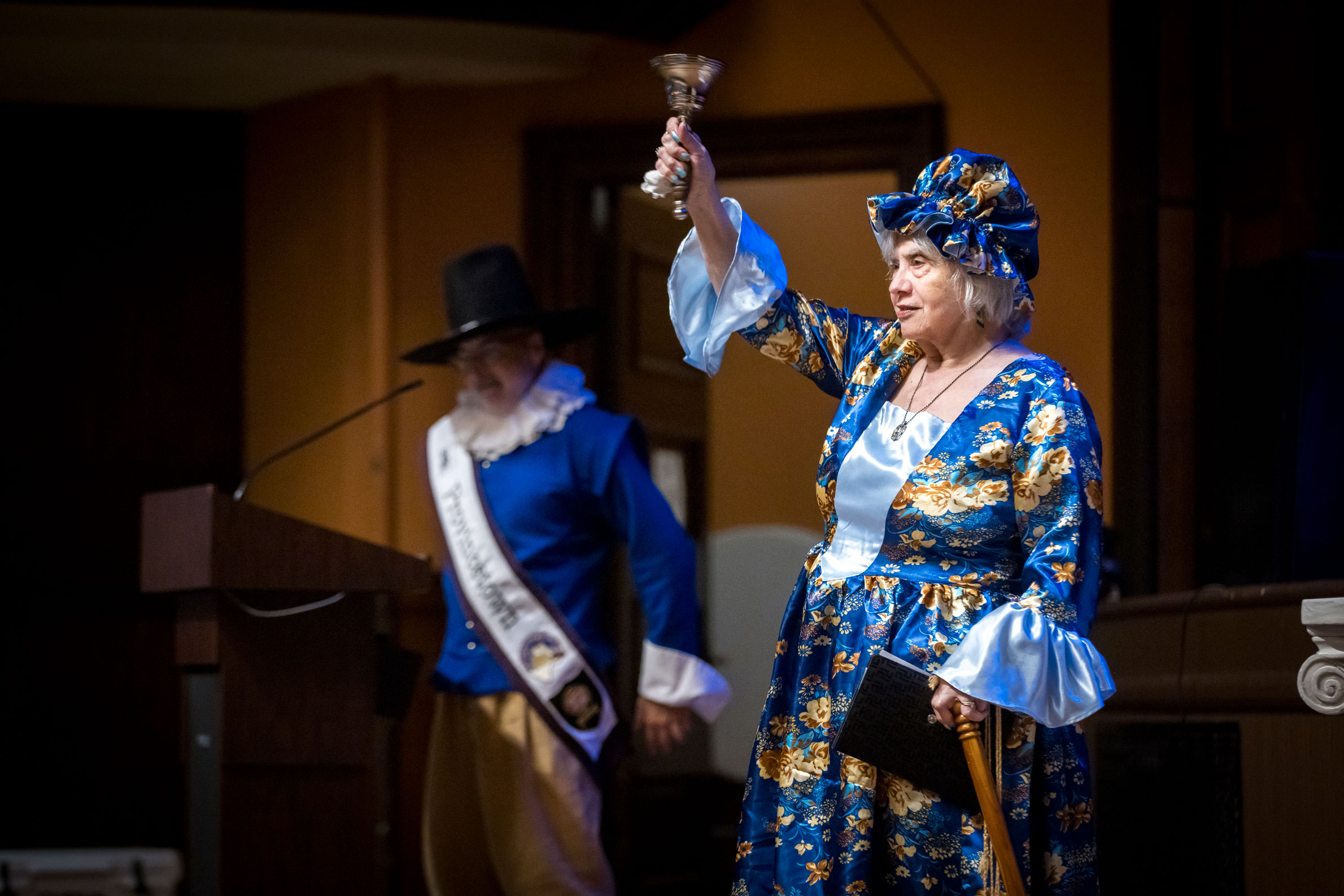
By the time of medieval England, crier content expanded. New laws, royal decrees, births, weddings, funerals, and advertisements for entertainment, plays, shops, bazaars, and market days were called out. They patrolled the streets after dark, acted as law enforcement, ensured fires were damped down after the curfew bell, and found lost children. They were protected by law; harming one was an act of treason. The phrase “Don’t shoot the messenger” derived from these protections.
Eventually, crier news was “published.” Their written announcements were nailed (posted) to doorposts on local inns or taverns. Thus began the long etymological root of newspaper names like “The Post” and “Town Crier.”
One of the earliest references to a Provincetown crier is in Henry David Thoreau’s Cape Cod, published in 1865. Regarding the sale of a shipwrecked vessel, Thoreau wrote, “We had heard the sound of the crier’s bell which advertised it.”
Modern technology’s ability to distribute information with greater capacity and rapidity rendered the job obsolete. Still, the crier has enjoyed a long legacy in Provincetown. No one knows precisely how many have held the position, as a fire at Old Town Hall in 1877 burned official records. But Llata believes he is at least the 22nd. The town has had one for most of the last 174 years.
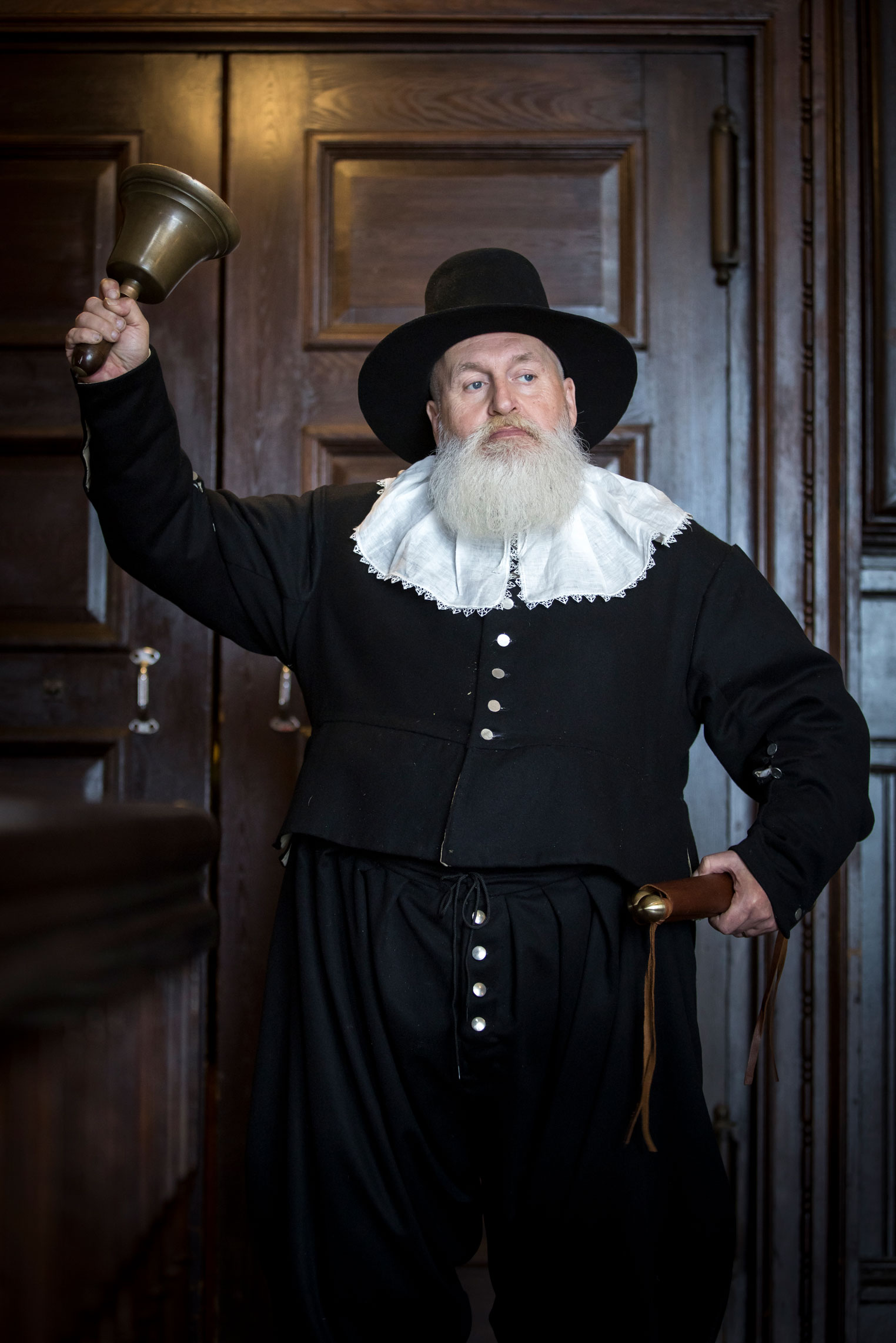
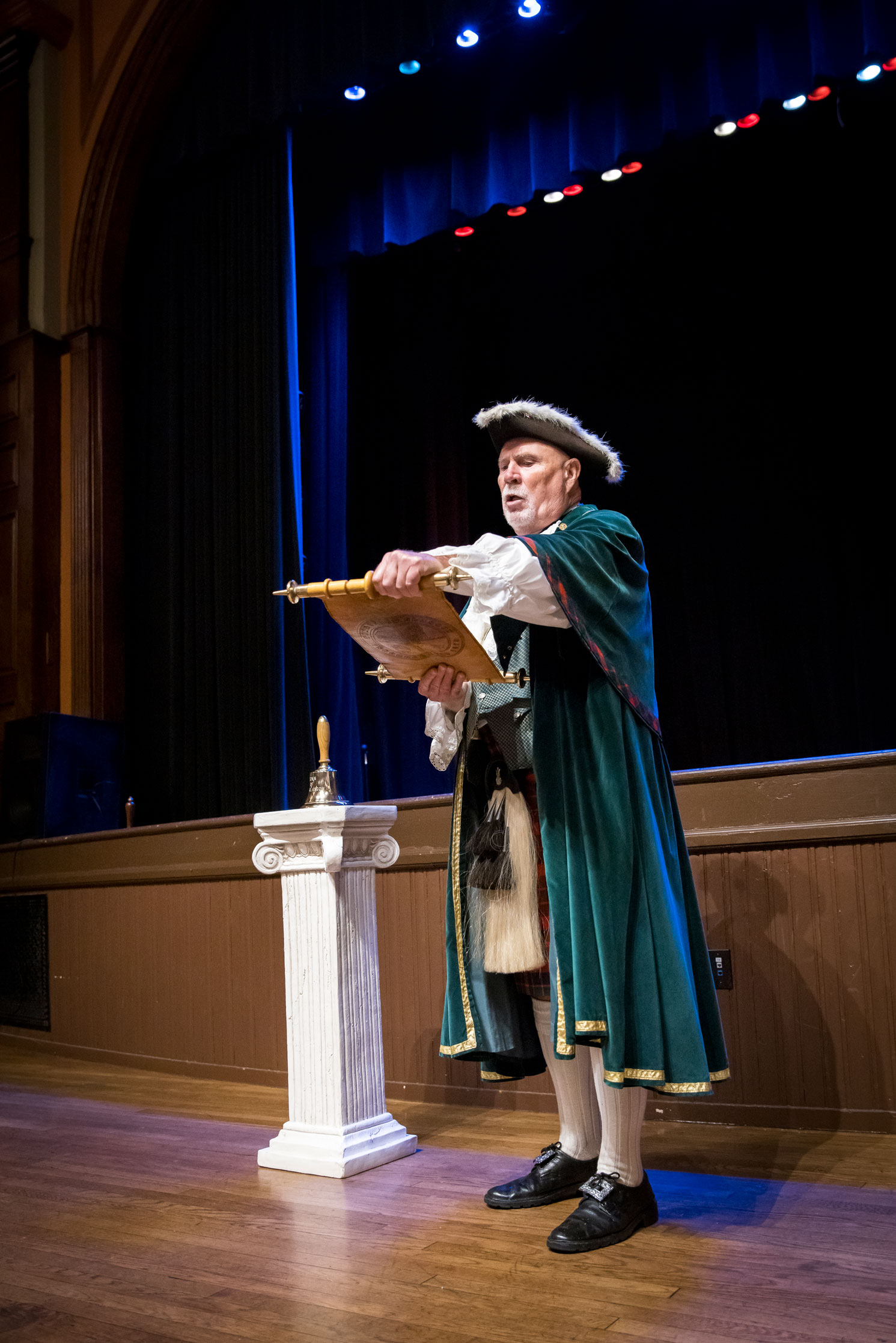
Today, Llata’s role is a combination of reverential pastiche and original interpretation. He is keen on maintaining fidelity to historically accurate wardrobe and accoutrements. One of his bells was made by Whitechapel Bell Foundry, the renowned London manufacturing company (think Liberty Bell and Big Ben). He calls it “Dorothy” in homage to Dorothy Bradford, a passenger on the Mayflower along with her husband, William Bradford, the future governor of Plymouth Colony. Mysteriously, on December 7, 1620, she fell off the ship into the freezing waters of Provincetown Harbor and drowned. Her body was never found.
There are approximately 400 active criers around the world and fewer than 30 in America now. On October 7, Llata hosted the first Provincetown Town Crier Competition with 10 contestants. For a curious public, it recalled the pageantry, grandeur, and significance of town criers of yore.
Llata performs seasonally from mid-May through November. He’ll greet passengers off the morning ferry on MacMillan Pier, lead parades, and make other public appearances. You will also find him in front of Town Hall at noon delivering the day’s local news, emphasizing arts, culture, and civics. And there is one constant: he always notes the time, tide, and weather.
“I especially love watching visitors take in the experience of visiting Provincetown for the first time,” he says with pride.
In an age of instantaneous digital communication, there is something quaint, if not reassuring, in hearing the bellow and bell of town criers. Daniel Gomez Llata is ensuring this grand tradition continues to flourish. 

